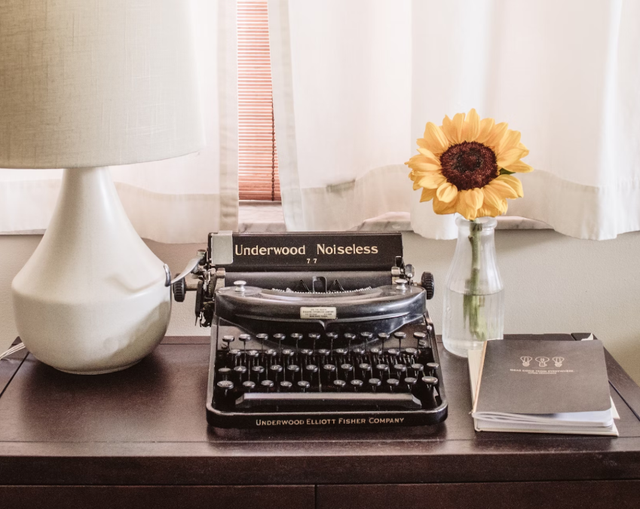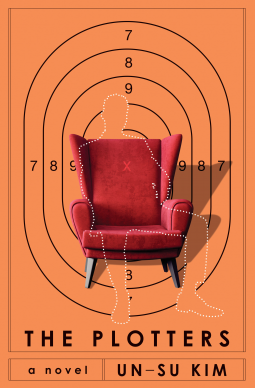
The Quiet Author’s Retreat: Creating a Peaceful Home Writing Space at Any Age
Constant notifications, the drone of the TV, barking dogs, and family members arguing — does that describe your house? A noisy, fast-paced world doesn’t leave much time for calmness.
And finding quiet moments for writing can feel impossible.
Your words shouldn’t get squeezed in between distractions and interruptions. Environments shape writing productivity; the right space houses, protects, and nurtures it. A thoughtfully designed writing area can help you slip into that coveted flow state and maintain focus. Don’t you want to feel genuinely excited about sitting down to write each day?
A dedicated writing retreat at home inspires creativity for writers at any life stage. Whether rediscovering your passion for writing in retirement, following a long-held dream, or trying this for the first time, a calming space can make all the difference.

Image Source: Unsplash
Start with Sound: Why Quiet Matters for Creative Flow
External, annoying noise disrupts the delicate mental processes that fuel good writing. Research shows that unexpected sounds, even quiet ones, pull attention away from deep work and hijack precious mental energy. Protecting the auditory environment is essential for writers, especially those crafting longer pieces or working through complex ideas.
Step away and isolate where the noise is coming from. Starting with the bigger picture, consider ways to reduce household noise structurally. There are budget-friendly methods and more involved projects that work. Switch out traditional furniture for soft pieces that absorb sound; add weather stripping to windows and doors. Replacing doors with solid wood versions and installing double-pane windows requires higher monetary investments, but the resulting quiet might be worth it.
Now, focus on the human element of noise control. Have honest conversations with family members or housemates about your writing schedule, and be willing to compromise. Set clear boundaries around your dedicated writing hours, and reciprocate by respecting their needs for quiet or space. And don’t forget to silence your mobile phone notifications.
Turn the Hobby Into a Habit (and Maybe a Career)
If you’ve only dabbled in writing and want to pursue the possibility, kudos to you. The advantages of learning new skills later in life are substantial. It stimulates the brain, and if the hobby becomes a habit, it could create new income streams. Set that self-doubt aside, establish clear goals, and practice, practice, practice. What began as journaling, occasional poetry, or “someday I’ll write that novel” thoughts can evolve into something more substantial when you give it the right conditions to grow.
This transition requires mindset shifts and practical changes, so start treating your writing with the same respect you’d give any meaningful pursuit. That means setting regular hours, even if brief, and showing up consistently rather than waiting for inspiration to strike.
Consider your natural energy patterns, too. Some writers find that their best work emerges in the early morning quiet, while others prefer the evening hours after the day’s responsibilities wind down. Honor your personal rhythms rather than forcing yourself into someone else’s schedule.
Professional writers often emphasize the importance of finishing pieces, however small. So instead of endlessly polishing the same paragraph, practice completing short works — essays, stories, poems — that give you the satisfaction of bringing ideas to completion. That fosters confidence and encourages you to really find and honor your unique voice through repetition and experimentation.
Now, Design a Space That Works for You
Experienced writers know that the perfect writing space needn’t be large or expensive. Don’t pick a high-traffic area where solitude will be hard to come by. Declutter, and ensure that you have seating that supports your body well.
Understanding ergonomics, when it comes to spending significant time in your writing space, avoids unnecessary pain or injury. Standing desks are great for writing and your back, shoulders, legs, and arms, have room to wander about and think, too. Your chair should support good posture without causing discomfort. Evaluate the placement and tilt of your screens to line them up with eye level and prevent neck strain. These physical considerations become increasingly important as you build a more substantial writing practice.
Other writing professionals’ tips for dedicated writing spaces include the importance of good lighting for avoiding eye strain. Combining ambient and focused task lighting gives you flexibility for different times of day and types of work.
Personalized writing spaces fuel creativity and motivation, but aim for inspiration rather than distraction. A few meaningful objects, like photographs, a plant, or books that inspire you, make the space feel welcoming without cluttering your visual field.
From Cluttered Desk to Creative Sanctuary
This makes sense: Physical clutter often reflects mental clutter. A disorganized writing space forces your brain to process unnecessary visual information, leaving less mental capacity for the demanding work of developing ideas and typing or writing sentences.
This means it’s time to transform your space. Start with a clean slate. Clear everything from your writing surface except the essentials. Your space needn’t be sterile — just intentional. Every item should earn its place by directly supporting or genuinely inspiring your writing.
Develop simple systems for managing the materials you do need. A small drawer or box for pens and supplies keeps them accessible and contained; a dedicated spot for notebooks or research materials prevents papers from spreading across your workspace. Digital organization matters, too — clean up your computer desktop and create a simple folder system for your writing projects.
Organization is personal, so what works for one writer might feel restrictive or insufficient for you. Don’t copy someone else’s system — create order that enhances your particular way of working for the smoothest trying to transition into a career.
Invest in Yourself Through a Peaceful Home Writing Space
Don’t wait to claim space for your creative work and protect it from the chaos of daily life. You deserve an environment that honors your commitment to putting down words and helps you achieve your writing goals.
Start small if needed. Move a chair to face away from distractions and add a cushion for comfort. Install weatherstripping to muffle outside noise and ask your son to take the dog for a walk. Each improvement, however modest, sends a message; it reinforces to yourself and those around you that you’re doing important work.
Your creative work can flourish under the same care and attention you’d give to any other activity that really matters to you. Building a retreat within your own home creates a space where your ideas can grow in peace. There, your voice can develop without interruption, and the quiet satisfaction of meaningful work can develop into something more than a hobby.


